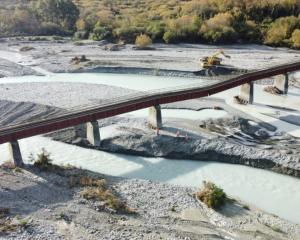Changes to remove inequities in the national bowel cancer screening programme which discriminate against Maori could and should be removed immediately, a senior health researcher says.
The programme is being introduced progressively around New Zealand, and provides free bowel cancer screening for 60-74-year-olds.
It started in the southern region last year, and most recent statistics show a 71% participation rate, well ahead of the national target of 60%.
However, the age range of the programme discriminates against Maori, Sue Crengle, a Southland GP and associate professor at Otago Medical School, said.
"Over 50% of Maori bowel cancer is diagnosed before 60," Dr Crengle said.
"By having that age range, we are deliberately failing to diagnose a third of Maori bowel cancer cases.
"Failing to act on that means the ministry is happy that they are going to harm all those additional Maori people in the meantime, when they could be diagnosing their bowel cancer earlier."
The Ministry of Health is aware of the issue and earlier this year held a meeting between Maori health experts and National Bowel Screening Programme advisers, which Dr Crengle attended.
National screening unit clinical director Jane O'Hallahan said the ministry was working on putting a range of recommendations from the meeting into action, and the highest prioritised recommendation was extending the screening age range for Maori to 10 years younger, from 50-74.
That change would probably not happen until after the full national introduction of the screening programme, which is not due until June 2021.
Dr Crengle said the change in the bowel cancer screening age range for Maori screening should be implemented immediately.
"There is no reason why they have to wait. Waiting discriminates against Maori," she said.
Dr O'Hallahan said a key priority for the programme was achieving equitable access to bowel screening pathway, and Maori, Pacific Islanders and people in deprived areas had been identified as priority groups.
Initiatives to improve equity included targeted community engagement, including identifying people who seldom engaged with health services to be part of the programme.
Figures for the Southern District Health Board region showed Maori participation in bowel screening was well above the national average, at 71.2%.
Three Maori were among the 68 southerners diagnosed with bowel cancer through the programme.
While those numbers were positive, they should not disguise the equity issue, Dr Crengle said.
"Even though we have better participation in both the Maori and non-Maori communities down here, that is not going to address the fact that over 50% of Maori bowel cancer is diagnosed before the age of 60, and those people are not in the bowel cancer screening programme."












